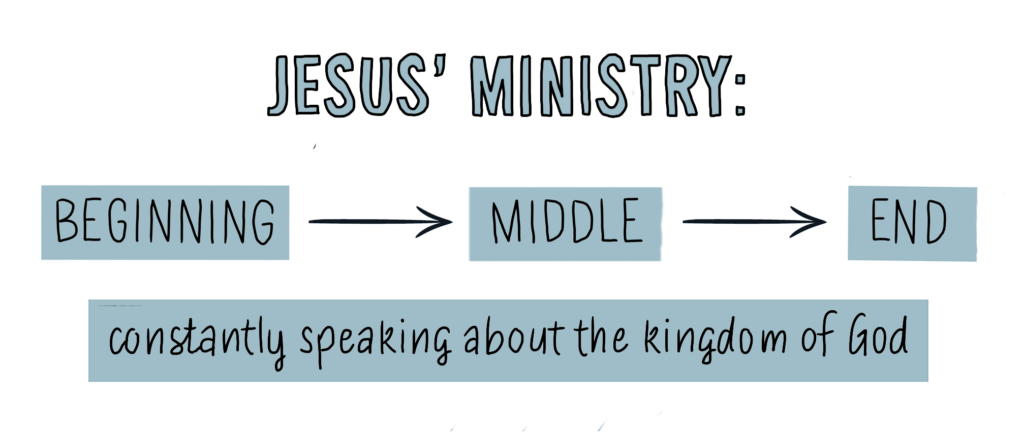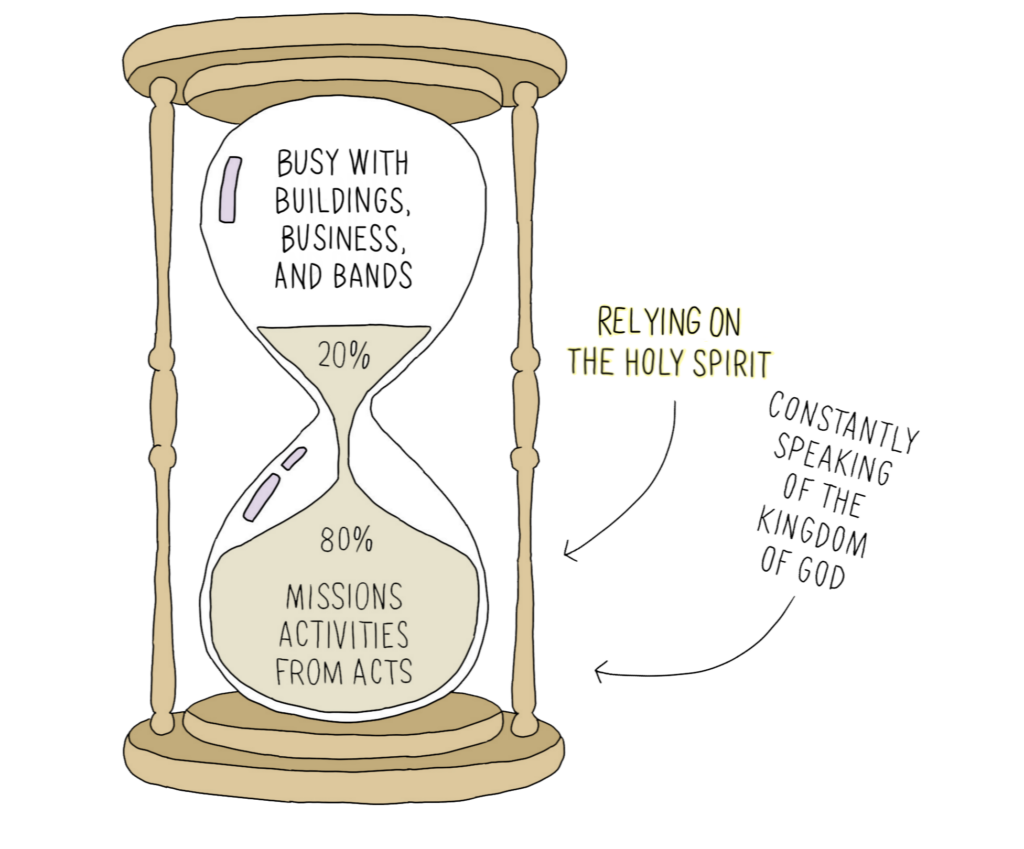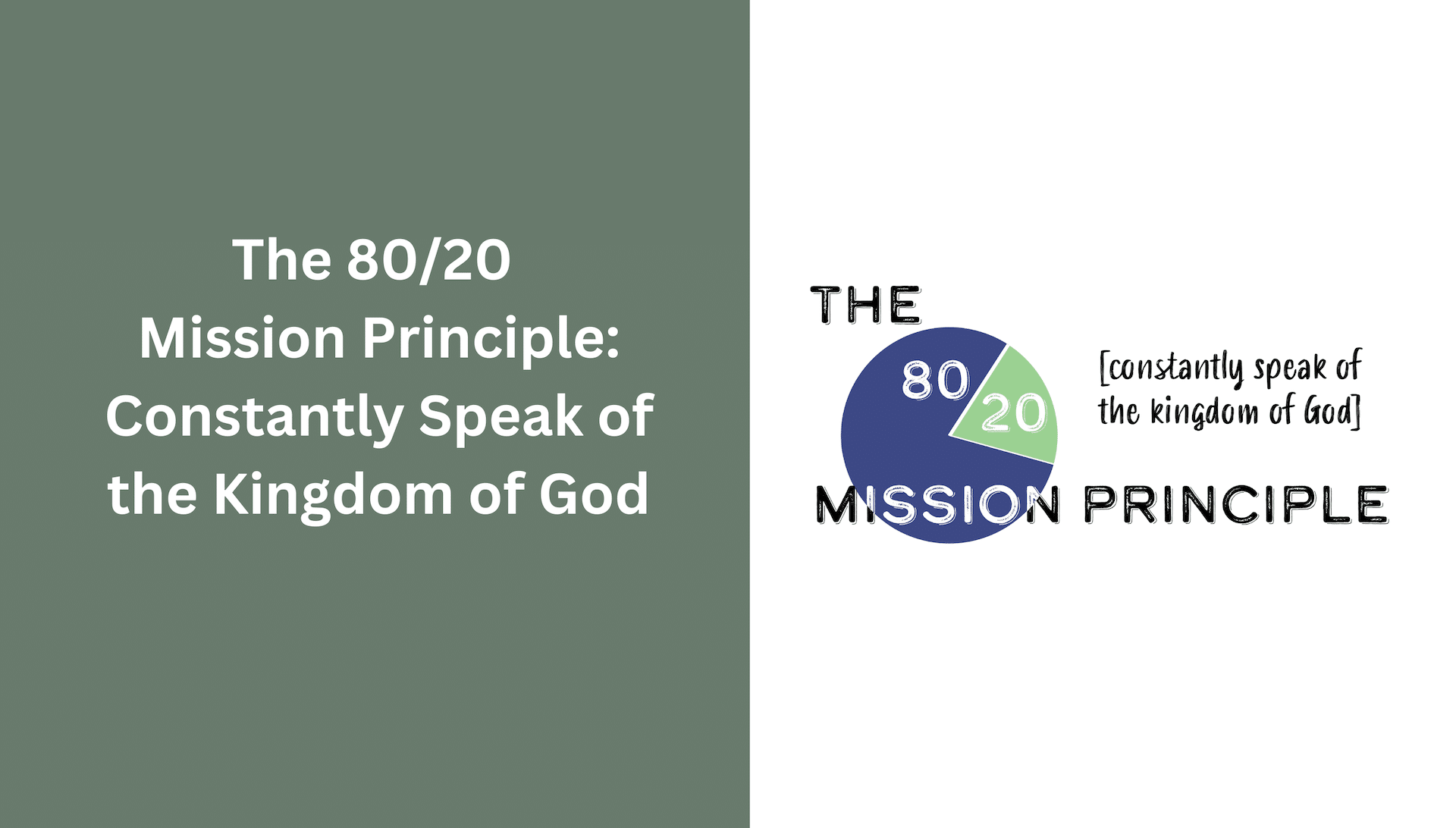By Jean Johnson
“As before, [Jesus] spoke constantly of the kingdom of God” (Acts 1:3, The Voice).
Jesus could have done so many things during His 40 days while risen from the grave, but once again He constantly spoke of the kingdom of God:
As before, he spoke constantly of the kingdom of God.
Speaking about the kingdom of God is how Jesus began his ministry:
From that time Jesus began to preach, saying,
“Repent, for the kingdom of heaven is at hand”
(Matthew 4:17, ESV).

Jesus constantly spoke about the kingdom of God in the beginning, in the middle, and at the end of His ministry, which means the kingdom of God was the plot of the story. The kingdom of God is not a seeable place or even a belief system, but rather it is the rule and reign of God in the hearts, thoughts, and actions of His people through Jesus.
Jesus passed on this DNA to his disciples, as well. Luke, the writer of Acts, started out this sacred account with the words: “In my first book I recounted the events of Jesus’ life—His actions, His teachings—from the beginning of His life until He was taken up into heaven” (Acts 1:1, The Voice).
George and his wife served God for many years in the Middle East among Muslims. For this couple, speaking about Christianity or trying to persuade Muslims to become Christians was like running into a brick wall.

The reason is because their Muslim friends were distracted by the extraneous cultural aspects that Westerners blended with their biblical faith. The idea of “Christianity” came with a lot of historical and Western cultural baggage for them.
It was when George stopped trying to invite people into Christianity and rather invited them into the kingdom of God that things shifted in a positive direction:
George might begin a conversation with a Muslim friend by saying, “Do you know what the main teaching was of Isa al-Masih [Jesus, the Messiah]?”
The friend might say, “Was it Christianity?”
George would say, “No, the Messiah never used the word Christian. His main teaching was about the kingdom of God.”1
In this way, the Muslims’ ears perked up and their wall of resistance went down. This approach gave George the opportunity to constantly speak of the kingdom of God to Muslims in an effective way, which was essentially sharing all that Jesus taught and did and our part in his rule and reign.

It is brilliant, isn’t it?—instead of passing on our Westernized version of Christianity, we pass on everything that Jesus passed on, which constitutes His kingdom.
There is no other way to bring about the kingdom of God on earth as it is in heaven than to constantly talk about His kingdom. Why does the average American know so much about the Magic Kingdom at Walt Disney? Is it not because people have talked about it so much? In the same way, we must talk about God’s kingdom until it becomes the fabric of society.
Do we spend 80 percent of our time constantly talking about the kingdom of God or are we so busy with buildings, business, and bands that we have little time to spontaneously speak of the kingdom of God with people (outside the church building)?

Do we find ourselves rushing from one activity and meeting to the next or are we constantly spending time with people, speaking about the kingdom of God in ways that turn a mirage into a living, active, now-and-forever kingdom for those who have not yet heard and believed?
The heart and soul of the Great Commission—baptizing and making disciples who obey Jesus’ commands and in turn make disciples of others—requires constantly speaking about the kingdom of God.
What do you need to shift in order to ensure that “constantly speaking of the kingdom of God” is your 80% of the 80/20 rule?

Thanks for joining us for this “80/20 Mission Principle” blog series! Behind? Check out the previous blog:
The 80/20 Mission Principle: Introduction
1. Bryan Bishop, Boundless: With Global Expressions of Faith Teach Us About Following Jesus (Grand Rapids, MI: Baker Books), 121.


